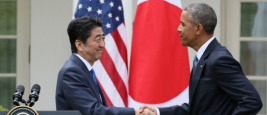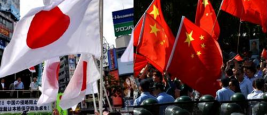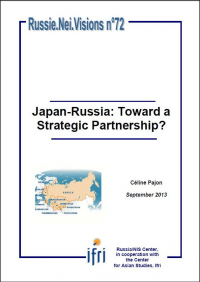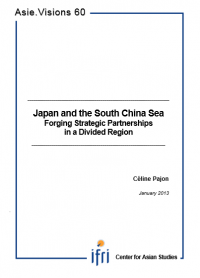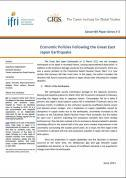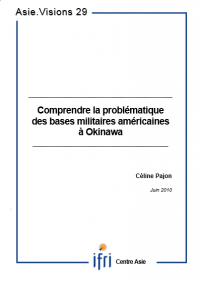
Céline PAJON
Research Fellow, Head of Japan Research, Coordinator of the Program on Pacific Islands,
Center for Asian Studies, Ifri
Research Interests:
- Japanese foreign and defense policy
- International relations and geopolitics of the Indo-Pacific
- French and European approaches to the Indo-Pacific and Pacific Islands
Celine Pajon is Head of Japan Research at the Center for Asian Studies of the French Institute of International Relations (IFRI), Paris, where she has been a Research Fellow since 2008. She also coordinates the research program on Pacific Islands, set up in March 2022. Céline is a Senior Researcher with the Japan Chair at Vrije Universiteit Brussels (VUB) and an International Research Fellow with the Canon Institute for Global Studies (CIGS) in Tokyo. Her area of expertise is Japan’s foreign and defense policy, as well as geostrategic dynamics of the Indo-Pacific area, including the position of France and Europe in the region, and their policies vis à vis the Pacific Islands. A graduate from the Institute of International and Development Studies in Geneva and Sciences Po Lyon, Céline also studied in Waseda University (Tokyo) and Osaka University.
She tweets @CelinePajon
What will become of US foreign policy under Donald Trump? A selection of Ifri researchers has come together to offer their thoughts on this question. Our experts cover an array of topics through 14 contributions, ranging from the future Sino-American relations, through US engagement in the...
China’s rise, US rebalancing in Asia, historic defense reforms in Japan, the adoption of new Guidelines for bilateral cooperation: the Japan-US alliance has reached a turning point in its history.
Nationalism appears to be an important part of the growing frictions between China and Japan.
...Asia is now a nerve center for global economic activity and a theatre of some of the most pressing security concerns of our time. So important has Asia become to global affairs today, and ostensibly for the decades to come, that many have already dubbed the 21st Century as the “Asian Century”....
Sino-Japanese relations have deteriorated since Shinzo Abe and Xi Jinping came to power.
Do the peace talks between Japan and Russia, reopened in March 2013 by Shinzo Abe and Vladimir Putin, have any chance of success? A window of opportunity has indeed opened for an historic rapprochement between Russia and Japan.
In the midst of growing tensions with China, Japan is deepening its strategic engagement in Southeast Asia. Preserving stability in the South China Sea, which is threatened by renewed frictions around contested territories, is a vital interest for sea lane-dependent Japan. Moreover, Tokyo...
In December 2003, Japan decided to be the second country in the Asia-Pacific to deploy a ballistic missile defense (BMD) system.
The decision of the Japanese Government to purchase a number of the Senkaku/Diaoyu islands from their private owner sparked fury in Beijing. Such spikes of fever between China and Japan are not without precedent. However, the gravity of this latest episode raises the question of whether a...
The failure of Prime Minister Hatoyama to transfer the dangerous U.S. military base of Futenma out of Okinawa hastened his resignation, announced on June 2nd.





